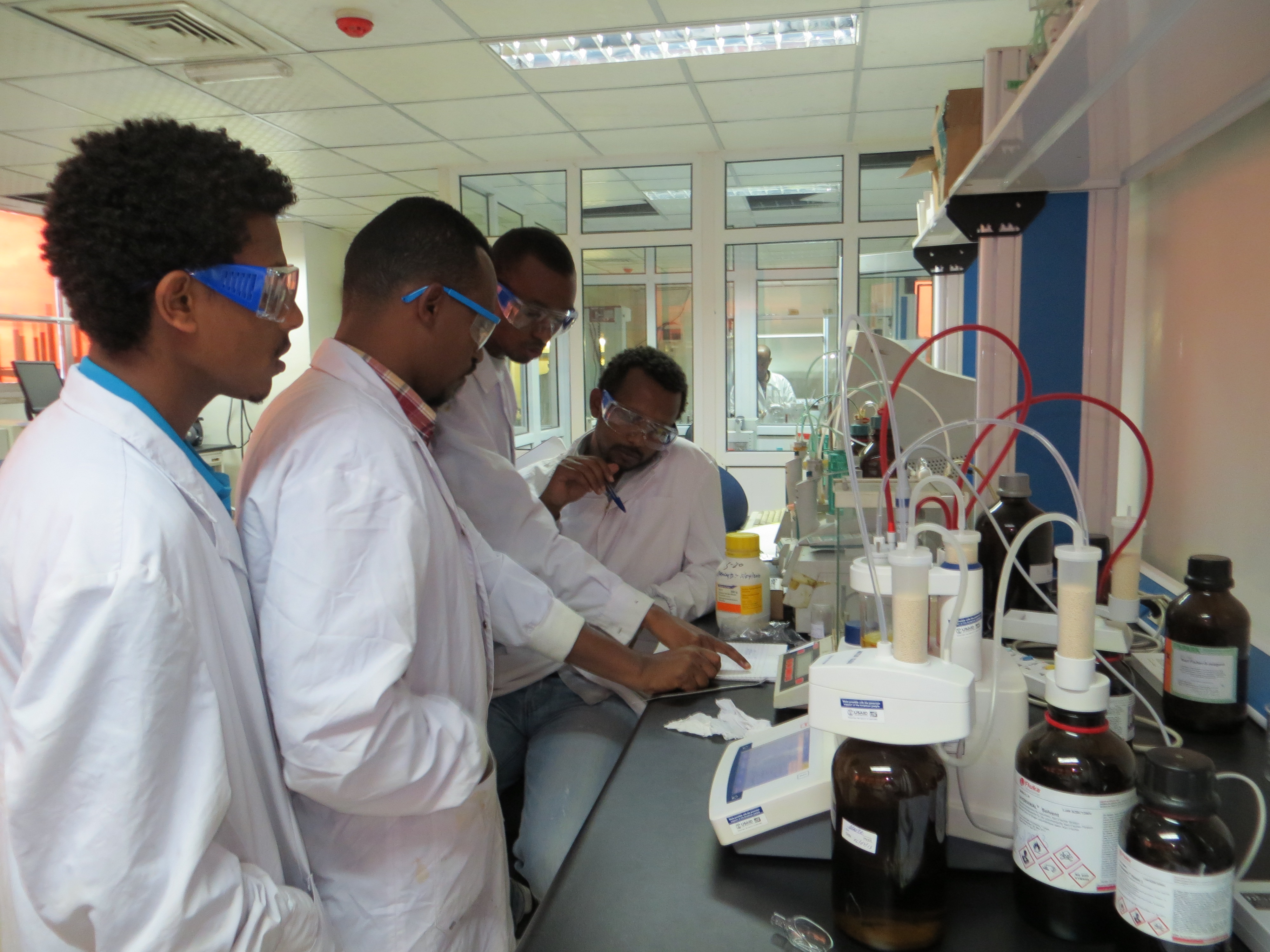In countries where HIV/AIDS is prevalent, condoms are essential to preventing transmission of the infection. The Promoting the Quality of Medicines (PQM) program supported Ethiopia’s national quality control laboratory (NQCL) to become accredited to effectively test male condoms, allowing the government to identify and take regulatory actions on removing poor-quality condoms that could expose the public to sexually transmitted diseases such as HIV/AIDS.
Watch this video:
Since more than 1.2 million people are living with HIV/AIDS in Ethiopia, effective barrier methods are essential to protecting individuals from transmission. While condoms help to prevent HIV transmission, they can leave people at risk if they are defective. That risk can become reality without the capacity to test their quality.
Ethiopia’s NQCL is the first USAID-supported laboratory in sub-Saharan Africa to hold accreditation for testing of male condoms.
To combat the circulation of defective condoms, PQM partnered with the Ethiopian Food, Medicine and Health Care Administration and Control Authority (EFMHACA) to support the country’s quality-assurance and quality-control systems. PQM trained laboratory staff on analytical and testing techniques; helped to develop standard operating procedures; supported the establishment of a quality management system; and instructed the staff on the maintenance, calibration, and qualification of laboratory equipment. PQM’s technical assistance and capacity-building efforts were critical to helping the lab obtain international accreditation.
Ethiopia’s national laboratory is now able to confidently:
- Test antiretroviral drugs and the quality of male condoms.
- Monitor and eliminate sources of falsified and substandard medicines.
- Identify and halt the distribution of 69 million defective condoms from a single manufacturer in FY16.
After having identified the defective condoms, EFMHACA took regulatory actions to prevent the distribution of the substandard condoms in the market, and the manufacturer was blacklisted.
As a result of this removal, more than 800,000 potential infections were averted, as were the costs associated with treatment.

PQM has been collaborating with the Ethiopian Food, Medicine and Health Care Administration and Control Authority (EFMHACA) to strengthen Ethiopia’s national laboratory network since 2009.
